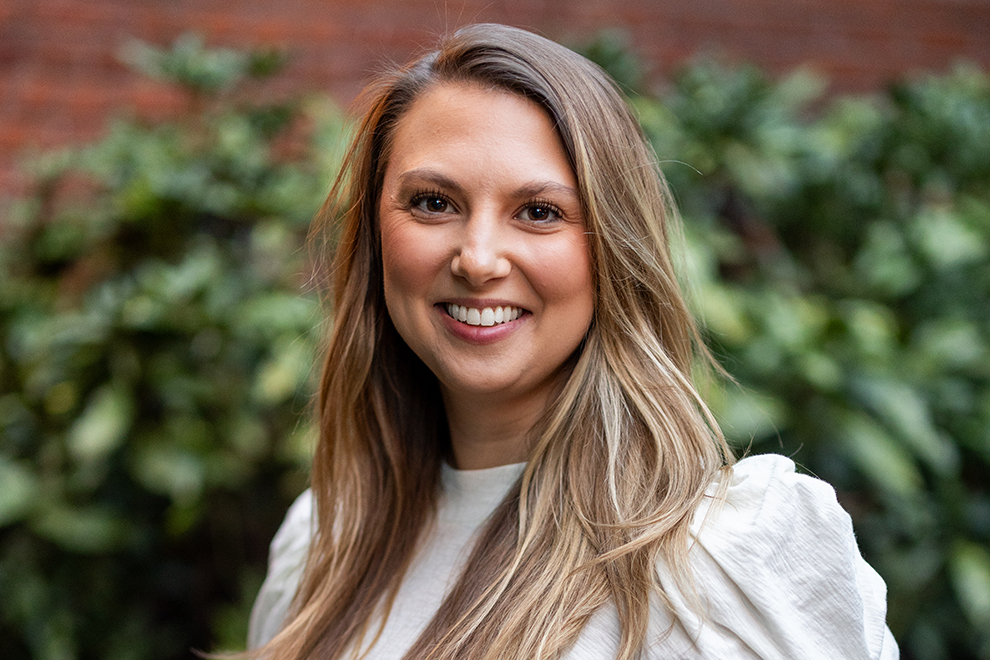One night during dinner, a family talk about service took an unforeseeable twist. The discussion went like this: “I want to help others, but I don’t want the teacher to see,” my 6-year-old said. I glanced at my husband, realizing our intended topic had headed in a very different direction. Before we could explain that giving someone an answer isn’t helping, my 10-year-old spoke up. “You shouldn’t do that!” A wave of relief washed over me – until she clarified: “If that person gets the answer wrong, he is going to blame you.” Obviously, this was not the explanation I wanted.
For the most part, cheating is still fairly rare on the elementary level. Kendall Marion, a third-grade teacher for eleven years, says, “I would be stretching it to say that maybe one or two kids cheat once in a school year.” Having taught in Henrico County for the last four years of her career, she explains, “By the time students get to me in third grade, most know that cheating at games is wrong. Translating that understanding to academic situations is important. At my school, we teach and model strong decision-making behaviors.I have been encouraged by the results, knowing that our elementary age students are so very impressionable.”
Unfortunately, Marion claims cheating has become more of a problem in recent years. “There is an increase of children with poor study skills, less endurance when it comes to focusing on tasks requiring sustained attention to new material, and busier schedules outside of school. Sadly, it possibly seems easier for students to cheat than spend time doing the work.”
Wandering eyes. Answers in the palm of your hand. Whispers in the hall after class. Notes passed behind the teacher’s back. That’s kid-stuff compared to the elaborate measures some older students will now employ to succeed: taking pictures of tests on their phones, texting answers to friends, claiming essays found online as one’s own. While the Internet rightfully shoulders the brunt of the responsibility, the reality is that the prevalence of helicopter parenting, as well as the testing culture that’s been created, are just as much to blame.
To address cheating and facilitate learning, some schools have student honor councils, like the one at Maggie L. Walker Governor’s School, a regional public high school which draws high-performing students from twelve divisions across Greater Richmond. John Wilkes is the faculty sponsor for the student honor council, which determines if disciplinary action is necessary for ethics-related transgressions. Although it’s a small percentage of students who come under investigation at Maggie Walker, Wilkes claims the incidence of cheating has increased over the last ten years.
According to Wilkes, who has taught global studies at Maggie Walker since 1992 and worked with the honor council for twelve years, “The Internet has become a playground for dishonorable work.” He estimates that 70 percent of the honor violations that occur at Maggie Walker involve cheating, and about 80 percent of those can be linked to the Internet. While plagiarism in the form of shortcuts to conducting research and the use of large improperly cited passages occurs in every discipline, Wilkes claims one of the most problematic aspects of the issue is that the Internet allows students to collaborate after the offense in a way they never could have before. The use of texting, email, and Facebook gives students an opportunity to set up stories in a timeline that face-to-face communication never would have allowed.
When questionable, less-than-ethical events occur, the Maggie Walker student honor council is notified. According to Shweta Tembe, a Henrico County senior at Maggie Walker and the student chairperson of the honor council, “It brings the responsibility of upholding an honorable environment to the students themselves, which in turn encourages the rest of the student body to unite in this noble pursuit. A student-run system removes much of the contempt for authority that some students have, bringing discipline to the people while helping the school administration understand the student’s perspective in cases of cheating and dishonesty.”
But these are smart kids. Why are they cheating? In his experience, Wilkes finds two typical profiles: students who are struggling to perform academically at the level their parents would like; and students who have high intellectual ability but have taken on too much. He claims some students are willing to cut corners if necessary, to deal with the pressure to get into the likes of Princeton. Categorizing this behavior as “achievement without values,” Wilkes adds, “The achievement-at-all-cost mentality flourishes greatly.”
Unfortunately, Maggie Walker is not alone. Students across the United States are cheating. The Stuyvesant High School scandal in the spring of 2012, when 140 students were caught cheating on the Regents Exam, is the perfect example. Robert Kolker of the New York Times writes, “Success in school today depends not just on the SAT, but on a raft of federal and state-standardized exams, often starting as early as fourth grade and continuing throughout high school. More than ever, those tests determine where kids go to college – and most kids believe that in an increasingly globalized, competitive world, college, more than ever, determines success.”
In The Parents We Mean to Be, author Richard Weissbourd writes, “About 40 percent of students identified getting into a ‘good college’ as more important than being a ‘good person.’” Where are kids getting such outlandish ideas? According to Weissbourd, half of them will say, from their parents. “Many of us are inadvertently sending our children all sorts of double messages about the importance of achievement at high levels,” argues Weissbourd. Although research indicates that children who see achievement failures as personal failures are at risk for a plethora of troubles, Weissbourd claims, many parents can’t seem to let up, fearing their child won’t be able to compete. As a result, children lie about their success in school and cover up their anxieties.
What makes a kid cheat in the first place? It begins with the lie, which is actually a highly sophisticated skill. According to Po Bronson and Ashley Merryman, the authors of Nurture Shock, in many cases, the smarter your child, the sooner he will start to lie because it “demands both advanced cognitive development and social skills that honesty simply doesn’t require.”
While parents claim to know when their kids are lying, Nurture Shock reveals research that actually proves the opposite is true. In fact, claim Bronson and Merryman, “Children learn to lie much earlier than we presumed…by their fourth birthday, almost all kids will start experimenting with lying.” This is problematic because it’s often viewed as innocent and, therefore, parents do not address it. Parents typically believe they’ll grow out of it. However, Bronson and Merryman maintain, “The truth is kids grow into it.”
Most lies are told to cover up mistakes. Bronson and Merryman explain this behavior is, again, typically dismissed by parents, as it is expected. From the child’s point of view, unless an extra penalty is issued for the cover-up, the behavior will be repeated. According to Nurture Shock, longitudinal studies actually reveal that while a 6-year-old who lies frequently could grow out of it, she usually doesn’t because it has proven to be such a successful strategy. So it shouldn’t come as a surprise to learn that what is perceived as innocent lying transforms into cheating and plagiarism as the demands of school intensify.
Unfortunately, over his twenty years in education, Wilkes from Maggie Walker has observed a real change in honor and cheating. When he began his career, there was very strong support from parents; whereas now there are far more excuses combined with incredulous parents who try to argue that what their child did wasn’t cheating. Wilkes shared how one time an attorney coached his teen, who had already admitted guilt, to raise reasonable doubt in terms of whether it was his intent to plagiarize. Another time, Wilkes says, a scientist mom helped her child with data collection because the student couldn’t do it independently.
Honor council chairperson Shweta says, “In my experience, some of the greatest pressure put on students is from their parents’ expectations. Parents can help by making sure their children understand that they will love them despite a failing grade or a missed assignment.”
In the case of the Stuyvesant scandal, the teenager who initiated the cheating did so because although he was proficient in physics, he struggled with Spanish. Since it’s unusual to excel in all areas, as Ivy League institutions require, some students are viewing academic success as a team effort. Therefore, as The Parents We Mean to Be suggests, it is up to us as parents to engage in honest self-reflection and stop clinging to the importance of achievement.Instead, we must strive to help our children understand that the learning process will always be paramount to the product. Otherwise, in the end, the person we cheat most is our kid.





